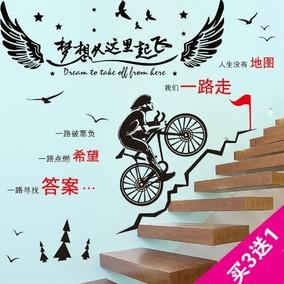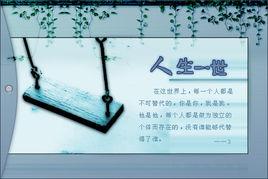2023年12月5日发(作者:我以我血)

Unit 6 The cret to good health
【单词回顾】 秘密_______ 简单的_______ 最少_______ 节食_______
较少的________ 多油的_______ 最后地_________ 甚至_________
微笑________ 至少__________ 保持一个良好的饮食习惯________________
一、短语: take exerci, stay healthy, at least, keep a good diet…
二、句型:
1. First, get plenty of sleep.
2. Don’t eat too much sweet or oily food.
3. How old does Mr Li look?
4. Get up early and go to bed early.
三、重点精析:
1. Keep a good diet. 保持一个良好的饮食习惯。
on diet 节食;减肥 balanced diet 均衡饮食
2. Eat more vegetables and less meat. 多吃蔬菜,少吃肉。
less是little的比较级 less than 少于 less and less 越来越少
3. First, get plenty of sleep, at least 8 hours each night.
首先,要有充足的睡眠,每晚至少有八个小时的睡眠。
分析: at least意思是“至少,不是少于”,是副词短语,可以修饰动词或整个句子
,用来强调程度或数量。
4. Don’t eat too much sweet or oily food. 不要吃太多糖和油腻食物。
分析:这是一个否定祈使句。祈使句是用来表达命令、请求、劝告、警告、禁止等语气的句子。祈使句有以下几种类型:
1)Do型----Do(表示行为的动词原形)+宾语+…
Take the No.7 bus over there. Open the door.
2)Be型----Be+名词 / 形容词+…
Be quirt! Be careful.
3)Let型----Let+宾语(通常是第一或第三人称宾格)+动词原形+…
Let’s go home.
4)Don’t型----Don’t+动词原形+…
Don’t read in the sun.
5)No型----No+名词或动词ing形式.
No photos! No smoking!
【巧记】祈使句句型口诀:
祈使句,无主语,只用谓语就可以。 表示请求或命令,加上plea表客气。
如果变成否定句,Don’t开头是规律。 No fishing! 是警示语,祈使句用法需记牢。
5. How old does Mr Li look? 李先生看起来多大了?
分析:这是How old引导的特殊疑问句,how old的意思是“多大”,用来询问年龄。回答时可以用“主语+be动词+数字+year(s) old.”
如:----How old are you? ----I’m eleven years old.
【拓展】how还可以和其他词一起来询问程度或状况:
How组合
How long
How big
用法
意为“多长”,提问长度。
意为“多大”,提问体积。
例句
How long is the ship? 这艘船多长?
How big is your box? 你的箱子多大? How tall
How many
How much
How well
意为“多高”,提问高度。
意为“多少”提问可数名词的数量。
意为“多少”,提问不可数名词的数量或价格。
意为“多好”,提问程度。
How tall is the tree? 这棵树多高?
How many pens do you have? 你有多少支钢笔?
How much water do you want?” 你要多少水?How much is it? 多少钱?
How well do you play piano? 你钢琴弹得多好?
6. 重点语法:介词
介词表明名词、代词等与句中其他词的关系,在句中不能单独作句子成分。介词可以分为时间介词、地点介词、方式介词、原因介词、数量介词和其他介词。时间介词和地点介词的用法如下:
1. 时间介词是用来表示时间的介词:
1)on表示在具体的某一天或具体的某一天的上午、下午或晚上。
如:on Monday 在星期一 on May 1st 在5月1日
on Sunday morning 在星期天早上 on Christmas day 在圣诞节
2)at表示在具体某一时刻或用于固定短语中。
如:at five o’clock 在五点 at night 在晚上 at noon 在正午
3)in泛指一天的早、中、晚,还可以表示一段时间,如星期、月、年、季节等。
如:in the morning 在早上 in 2014 在2014年 in winter 在冬天
4)from… to…“从……到……”用来指时间范围。
如:We go to school from Monday to Friday. 我们从星期一到星期五上学。
5)before意思是“在…..之前”,after意思是“在……之后”,用来表示时间的先后顺序。
如:Wash your hands before dinner. 饭前要洗手。
Plea clean the classroom after school. 放学后请打扫教室。
2. 空间介词是用来表示空间或位置的介词。
1)on表示在某一平面或线上,强调与某物体有接触。
如:There is a pen on the desk. 书桌上有一支钢笔。
2)in表示在较大的地方,在某立体空间或平面范围之内。
如:The kids are playing in the room. 孩子们在房间里面玩。
3)at用于表示在一个较小的地点,这个地点被当作一个点来对待。
如:She is waiting for you at the gate. 她在大门处等着你。
4)over强调在某人或某物的正上方,而且两物体表面没有接触;above强调位置在某物体的上方,并不一定是正上方,而且两物体表面也没有接触。
如:There is a bridge over the river. 河上面有一座桥。
Some birds are flying above the clouds. 一些鸟儿在云朵上飞翔。
5)under强调在某物的正上方,两物理表面可以接触,也可以不接触。below强调位置低于某参照物,但并不一定是正下方。
如:A cat hides under the sofa. 一只猫咪藏在沙发下面。
Plea do not write below this line. 请不要写到这条线下面。
6)between表示位置在两者之间;among表示位置在三者或者三者以上之间。
如:I t between Tom and Mary. 我坐在汤姆和玛丽之间。
Susan is among the crowd. 苏珊在人群当中。
7)in front of表示在一定范围外的前面;in the front of表示在一定范围内的前面。
如:There is a fountain in the front of the park. 公园的前面有一个喷泉。 He is standing in front of me. 他正站在我前面。
【练一练】介词填空:
1. the first day ________ school 2. ________ the school playground
3. _________ class 4. _________ Wednesday
5.__________ a farm 6. a lot _______ fruit trees
7. live _________ a town 8.________ the weekends
9. look _______ them 10.________ the sitting room
11. ________ the 4th ______ November 12. _________ the playground
13. ________ his grandpa’s hou 14. ________ New Year
15. talk _______ his students _______ holidays 16. _________ Christmas Day
17. have a big lunch _________ my family 1 18. _________ September or October
【即时演练】
一、单项选择。
( )1. —________ —I have a headache.
A. What's the matter, Judy? B. Where are you, Judy?
C. Who are you? D. What are you doing, Judy?
( )2. I think walking is ________ our health.
A. good at B. bad at C. well in D. good for
( )3. We should not eat ________ junk food.
A. too many B. too much C. many too D. much too
( )4. Did you ________ some medicine?
A. take B. eat C. drink D. have
( )5. ________ you have a cold?
A. Do B. Are C. Can D. Should
( )6. My grandfather takes exercis ________ two hours every day.
A. with B. in C. as D. for
( )7. Do you know the cret _________ good health?
A. in B. on C. at D. to
( )8. Can you find the answer _________ the question?
A. in B. on C. at D. to
( )9. —What’s the matter with you? —I caught_____ and had to stay in ____ bed.
A. a; / B. a; the C. a; a D. the; the
( )10. —I have got a bad cold. I feel terrible. — ____________
A. All right. B. Is that so?
C. Sorry to hear that. D. I’m afraid so.
( )12. My uncle lives ____ 88 Beijing Street.
A. to B. of C. at D. on
( )13. They are waiting ___ a bus ___ the bus stop.
A. for; in B. on; at C. with; at D. for; at
( )14. Children get gifts ____ Christmas and ____ their birthdays.
A. on; on B. at; on C. in; in D. in; on
( )15. ----There is nothing ____tomorrow afternoon, is there?
----No. We can have a game of table tennis. A. on B. in C. out D. up
( )16. A lot of students in our school were born____March, 1981.
A. in B. at C. on D. since
( )17. Tim suddenly returned____ a rainy night.
A. on B. at C. in D. during
( )18. My grandfather was born____Oct. 10, 1935.
A. on B. in C. at D. of
( ) are some birds singing___ the trees.
A. in B. on C. at D. from
( )20. There are so many apples___ that tree.
A. in B, on C. at D. from
二、. 单句改错,下列各句中均有一处错误,请指出并改正。
1. What's(A) the matter(B) to(C) you(D)? ________
2. My father often(A) eats(B) too many(C) food(D). ________
3. We are(A) tired(B), so we want(C) to have rest(D). ______
4. If you want to(A) stay health(B), you must(C) take some exerci(D). ________
5. The old man(A) might(B) is(C) a doctor(D). ________
三、 对话排序,选择下列每组句子的正确语序,使其组成符合逻辑的对话。 (
①Is it anything rious?
②My head hurts. I feel terrible.
③Plea sit down. Let me have a look at you.
④What's wrong with you, young man?
⑤No, nothing rious. Take this medicine and you can be better soon.
A. ①②④③⑤ B. ④②③①⑤
C. ③④②①⑤ D. ④②①③⑤
四、句型转换
1. He has a fever. (就划线部分提问)
__________ __________ __________ with him?
2. Tom should eat something. (变成否定句)
Tom __________ eat __________.
3. My headache started two days ago. (就划线部分提问)
__________ __________ your headache __________?
4. I have a cold. (变成一般疑问句)
__________ you __________ a cold?
5. She has a toothache. (变成否定句)
She __________ __________ a toothache.
should drink a lot of water.(改为同义句)
You should drink _______ ________water.
五、 完成对话
(A)从对话后的方框中选出能填入空白处的最佳选项。
A: We are going to play basketball. (1)________
B: I'd like to, but I can't.
A: (2)________
B: I have to e Xiao Fang in the hospital.
) A: What's the matter with her? (3)________
B: (4)________
A: (5)________
B: I'm afraid I can't.
A. Her head hurts and she doesn't want to eat.
B. Would you like to go with us?
C. Anything rious?
D. Are you coming later?
E. What do you have to do?
(B)根据对话内容在空白处填写入一个适当的词语使对话完整。
Doctor: What's__(1)__with you, young man?
Paul: I don't feel__(2)__.
Doctor: I'm__(3)__to hear that. Plea take__(4)__your shirt and__(5)__down on the
bed.
Paul: Yes, doctor.
Doctor: Well, there's__(6)__much wrong with you. Do your take much exerci?
Paul: No, doctor. I never have__(7)__time for exerci.
Doctor: How do you sleep?
Paul: Very badly, doctor. Can you give me__(8)__medicine to help me sleep?
Doctor: Yes, I can, but I'm not going to. You don't need medicine. Just take more exerci.
Paul: You're right, doctor. It's important for me to__(9)__healthy. Thank you for your
advice.
Doctor: You're welcome. I__(10)__you feel better soon.
1._________ 2._________ 3.___________ 4.___________ 5.________
6._________ 7._________ 8.___________ 9.___________ 10._______
六、阅读理解。
It’s important for us to be healthy. But how can we keep healthy? First,
you should eat fruit and vegetables three or four times a week. Then eat some tofu every
day becau it’s good for people, both the young and the old. Milk is also necessary(必要的),especially for women. So you should have milk twice a day. It can help you
to be strong. Next, doing more exerci is better. You can do morning exercis or evening exercis. After supper you should take a walk.
( ) 1. You should eat_______ three or four times a week.
A. fruit and fish B. vegetables and mutton
C. tofu D. fruit and vegetables
( ) 2. Tofu is good for ______.
A. young people B. old people C. young and old people D. students
( ) 3. Why do people have milk?
A. It,s delicious. B. It’s a kind of drink.
C. It’s bad for you. D. It can help you keep strong.
( ) 4. You should have milk .
A. four times a day B. five times a week
C. twice a day D. twice a week
( ) 5. The passage mainly tells us__________. A. how to keep healthy B. what health is
C. why health is important D. how often you can eat tofu
七、写作。
以“My healthy life”为题写一篇小作文。
__________________________________________________________________________________________________________________________________________________________________________________________________________________________________________________________________________________________________________________________________________________________________

本文发布于:2023-12-05 07:24:13,感谢您对本站的认可!
本文链接:https://www.wtabcd.cn/zhishi/a/1701732253111428.html
版权声明:本站内容均来自互联网,仅供演示用,请勿用于商业和其他非法用途。如果侵犯了您的权益请与我们联系,我们将在24小时内删除。
本文word下载地址:小学六年级英语上Unit 6 The cret to good health.doc
本文 PDF 下载地址:小学六年级英语上Unit 6 The cret to good health.pdf
| 留言与评论(共有 0 条评论) |